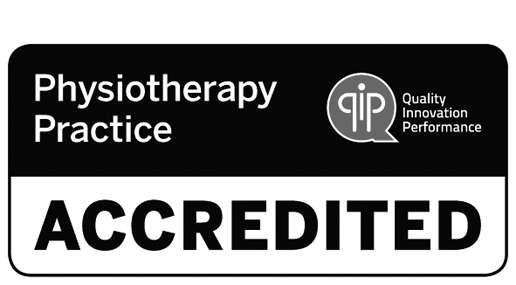
Erectile Dysfunction Following Prostate Cancer Treatment
When faced with a prostate cancer diagnosis, men are also confronted with a possibility of experiencing erectile dysfunction as a side effect of their treatment. Whether it be following prostate cancer surgery, radiotherapy or hormone treatment, this has a significant impact on the quality of life experienced after treatment.
Erectile Dysfunction
Erectile dysfunction (ED) is any difficulty achieving or maintaining and erection. The degree to which this occurs varies greatly from person to person.
In the initial period following prostate cancer surgery, most men will lose their ability to get an erection. The ability to be able to regain erectile function depends on if surgery was able to ‘spare’ the nerves that supply the penis, how erections functioned before surgery, other health conditions, age and other medications. It can take 18 months to 2 years to regain some or all improvement in erectile function following surgery.
With radiotherapy, ED may occur 6-18 months after treatment and can continue to worsen thereafter, due to damage to the blood vessels and nerves to the penis from the radiation.
Hormone therapy reduces the male hormone, testosterone, which is vital to be able to achieve an erection. When there is reduced testosterone in the body, this can impact the ability to get and maintain an erection as well as reduce libido or arousal.
The Risk Of Losing Erectile Function Takes Its Toll
Dr Chris Nelson, is the head of the Psychiatry / Psychology Department at Memorial Sloan Kettering Cancer Centre in New York. He is both a clinician and a researcher, and focusses on understanding and supporting men and their partners to optimise intimacy and address the psychological problems that arise with incontinence and erectile dysfunction following prostate cancer treatment. His research has supported what many of our patients tell us:
- Erectile dysfunction is associated with depression & distress, which often leads to withdrawal from social and intimate situations
- The level of bother experienced about erectile dysfunction doesn’t reduce over time (ie men simply don’t just ‘get used to it’ or become ok with it over time)
- It has a significant impact on relationships, which is often why prostate cancer can be referred to as “the couple’s disease”
- There can be increased anxiety and fear about sex and using treatments for erectile dysfunction which often leads to men avoiding sexual situations and intimacy altogether
There is Treatment Available for ED
Conservative treatment options for erectile dysfunction can include:
- Good lifestyle habits: general exercise, eating well and managing conditions like diabetes and high cholesterol
- Oral medications eg Viagra, Levitra, Cialis can help to achieve an erection by increasing the amount of blood flow to the penis following sexual stimulation or arousal. Your doctor will prescribe a dose that is right for you. What is important to understand, is that in the early stages, these medications might not be enough to achieve an erection. However, over time, it can start to make a difference. Keeping blood flowing to the penis helps to keep it healthy.
- Injections into the penis can be very effective and can lead to achieving an erection for 30-60 minutes. These injections can be administered yourself, after you have been shown how to do this by a health professional (often a urology or prostate cancer nurse)
- Vacuum Erection Devices eg pumps. A clear cylinder is placed over the penis and then sealed off, creating a vacuum. A pump like action draws blood into the penis, creating an erection. A ring can be placed at the base of the penis to keep the penis erect to achieve sexual intercourse or masturbation
- Pelvic Floor Muscle Training. The superficial pelvic floor muscles play an important role in maintaining an erection, the firmness of erection, and ejaculation. Strengthening these muscles is important in the multidisciplinary management of erectile dysfunction and premature ejaculation.
It may feel awkward and uncomfortable to talk about erectile dysfunction with your health care team, but rest assured, they are used to having these types of conversations and can help direct you to the treatment options of your choice. Asking lots of questions, even if you might feel a little embarrassed, can help you to understand your options and get the right advice early.
Starting Treatment For Erectile Dysfunction Early Can Help
The degree to which erectile dysfunction is impacted can vary from person to person. Research tells us, and we also see this in our clinical practice, that many men who have had their prostate surgically removed and are also experiencing incontinence, they will want to focus on their bladder control before they work on their erectile dysfunction. Unfortunately, this can lead to some missed opportunities in improving the health, blood flow and nerve stimulation to the penis which can sometimes impact the long term ability for a man to regain their erectile function. Starting early and with the guidance of a health care professional, can increase the chances of regaining erectile function
Incontinence Is Also Common Following Prostate Cancer Treatment
Unfortunately, urine leakage following prostate cancer treatment is also a common side effect.
During surgery, there is a small sphincter mechanism that sits at the base of the bladder, within some of the prostate. When the prostate is removed, this sphincter mechanism can become impaired, meaning that incontinence can occur. The degree to which men experience urine leakage can vary greatly. There is good evidence to show that starting pelvic floor muscle training before surgery can help to reduce the amount of urine leakage after surgery. Read more about Incontinence following prostate surgery
Getting The Support You Need Following Prostate Cancer Treatment
Recent research also tells us that there are many unmet psychological needs of men undergoing prostate cancer treatment, which we have also explored in our article Emotional Burden Of Prostate Cancer
If you, or someone you know is struggling with ED, sexual or relationship problems following prostate cancer treatment, talk with your health care team about what treatment may be appropriate for you. Further information and support can also be found through these wonderful organisations:
September 2023




